The commandant of Auschwitz, Rudolf Höss, and his wife Hedwig, strive to build a dream life for their family in a house and garden next to the camp. A hypnotic and deeply chilling masterpiece from filmmaker Jonathan Glazer, starring Sandra Hüller and Christian Friedel.
THE ZONE OF INTEREST
Jonathan Glazer
(2023)
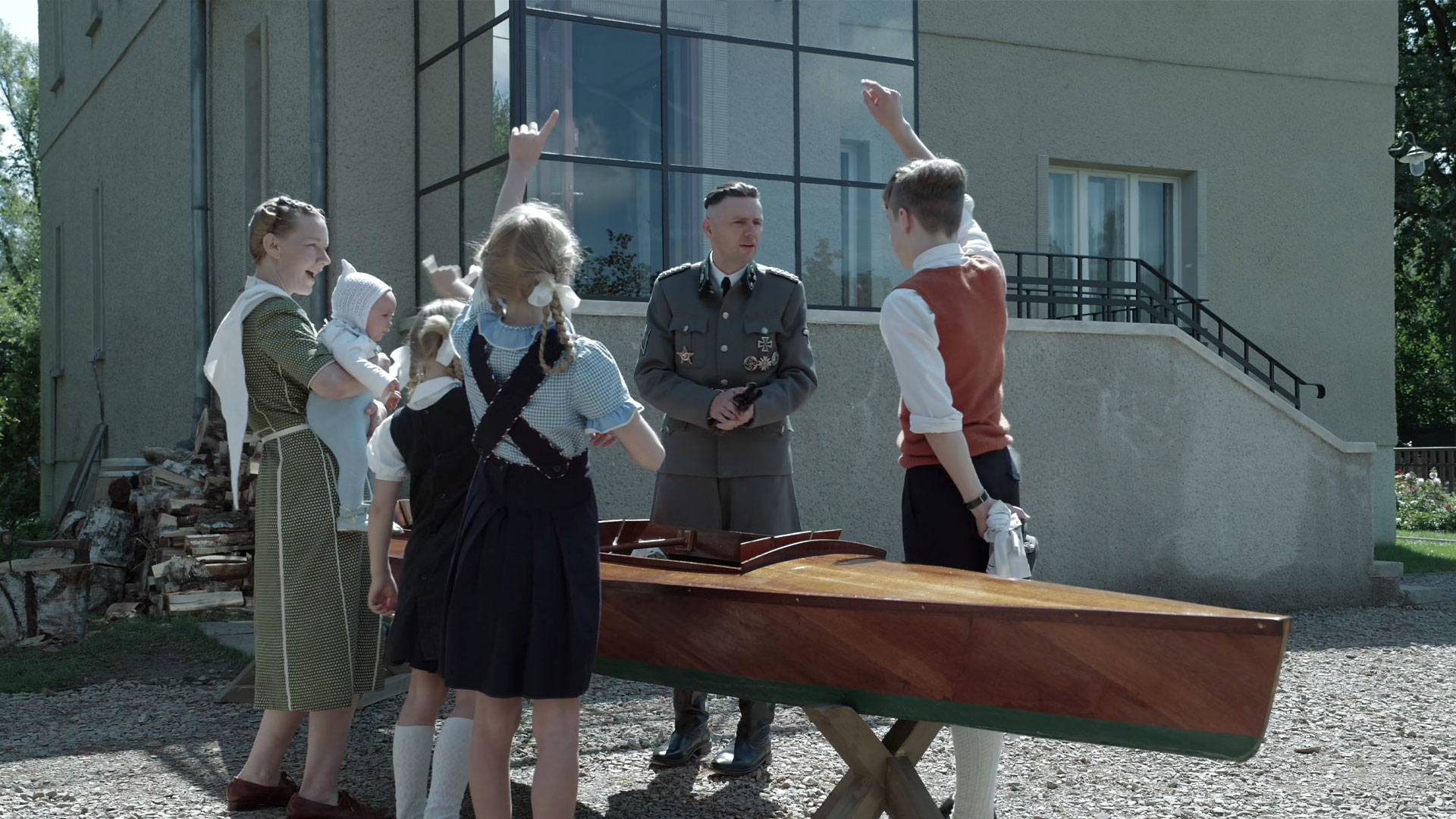
In 1943, Rudolf Höss (Christian Friedel) enjoys a comfortable life in a grand Polish house with his wife Hedwig (Sandra Hüller) and their five children: Claus (Johann Karthaus), Hans (Luis Noah Witte), Inge-Brigitt (Nele Ahrensmeier), Heideraud (Lilli Falk), and Annagret (Anastazja Drobniak). They are well-served by a staff of maids and gardeners who meticulously tend to the expansive property. On Rudolf’s birthday, Hedwig surprises him with a beautiful canoe as a gift.
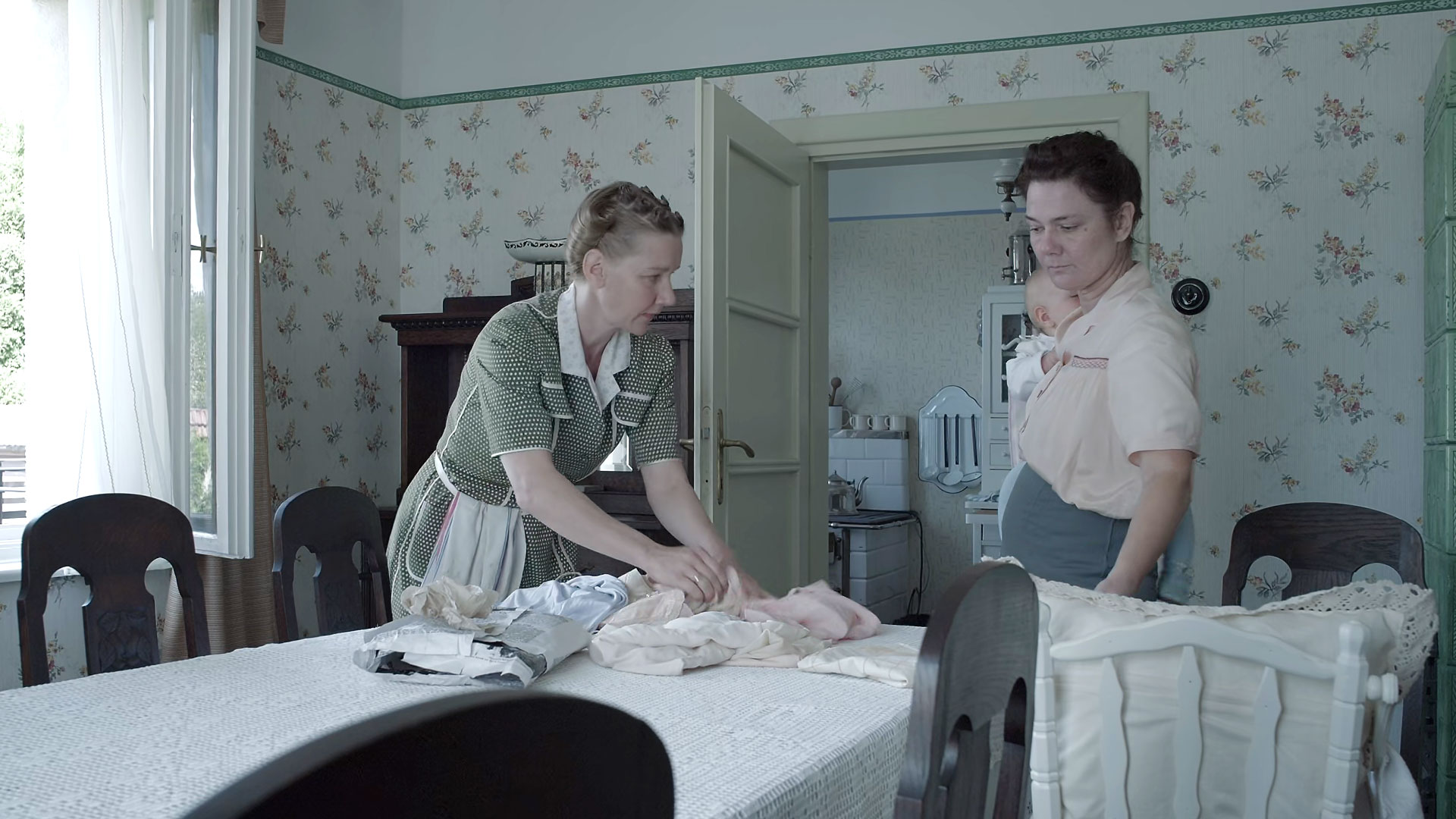
Every morning, Rudolf rides a horse to work at the concentration camp adjacent to his property. The camp’s wall actually shares a border with their garden.
While the children head off to school, Hedwig remains at home, caring for their youngest daughter, Annagret. The maid takes care of household chores, washing and drying clothes and bedsheets.
Bronek (Andrey Isaev) arrives to deliver food supplies to another maid, who then carries them inside and carefully arranges them on a shelf. Bronek also delivers two bags to Hedwig. One contains several blouses, which she spreads out on the dining table and announces that each maid can choose one they like.
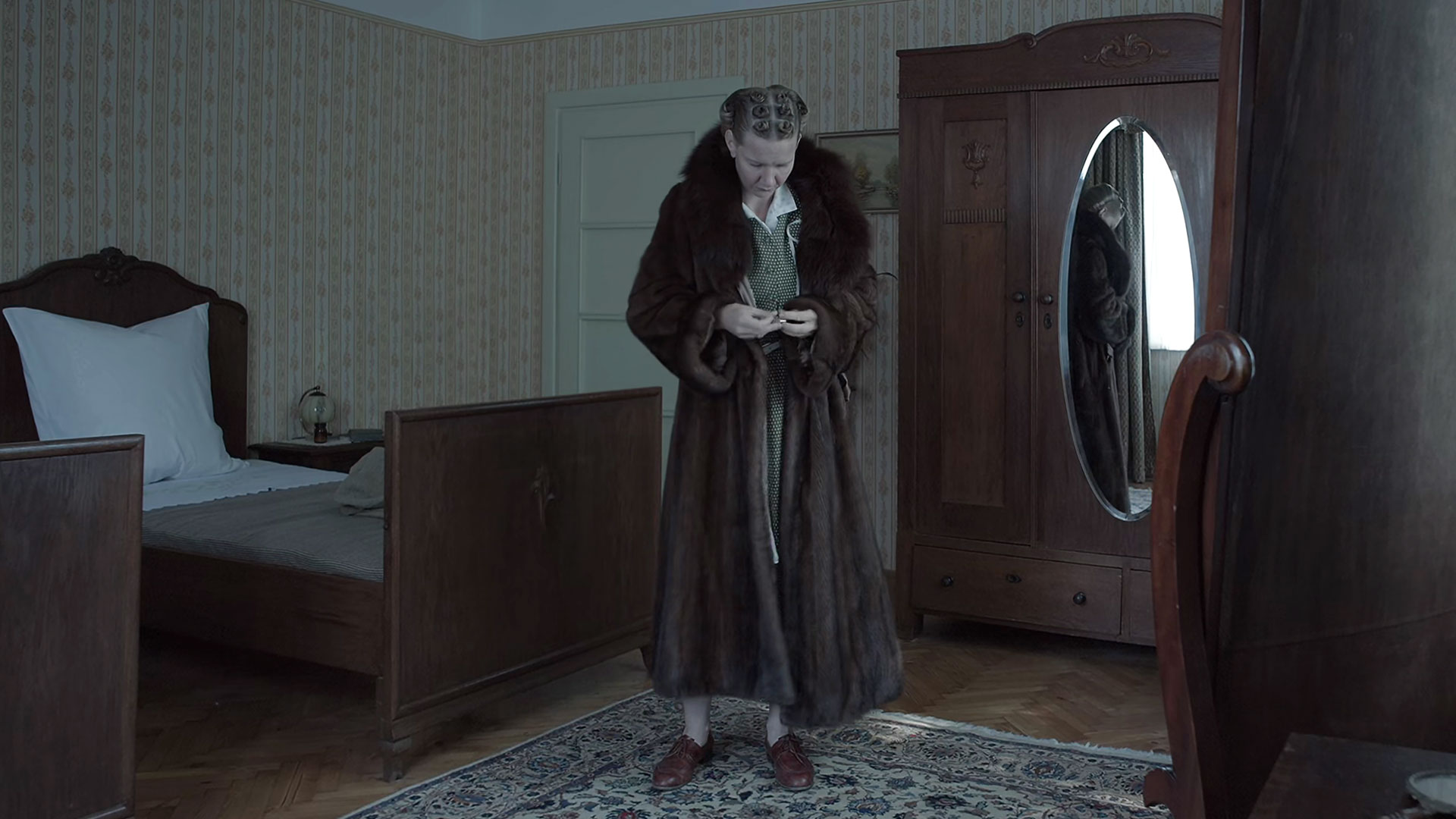
Hedwig opens the other bag in the bedroom and discovers a fur coat inside. She slips on the coat and finds a lipstick tucked away in a pocket. To her dismay, she notices that the coat’s lining is damaged.
Carrying the coat downstairs, she asks one of the maids to clean it and mend the lining with particular care. The appearance of the clothes suggests that they once belonged to prisoners from the camp.
The sounds of gunfire and people’s anguished screams occasionally pierce the air from beyond the garden’s wall. However, a sense of numb acceptance seems to have settled over everyone, allowing them to continue their lives in a semblance of normalcy.
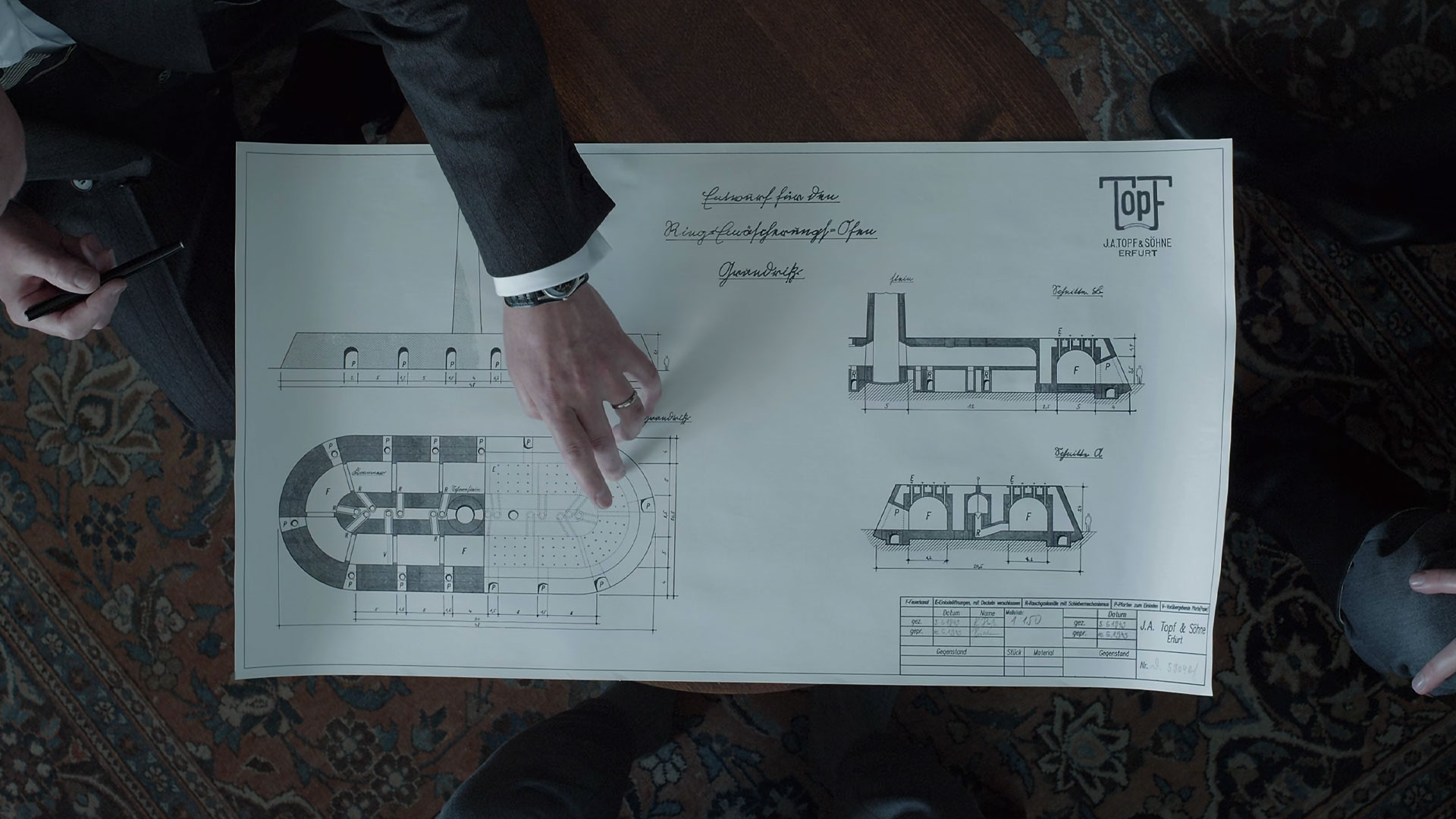
Hedwig receives visitors, friends with whom she chats over coffee. She excitedly shares about finding a diamond hidden in a toothpaste.
Meanwhile, in his role as camp commandant, Rudolf meets with two architects who present their design for a new, more efficient crematorium. He approves the plans. Later that day a large gathering of camp officers arrives at Rudolf’s house to celebrate his birthday.
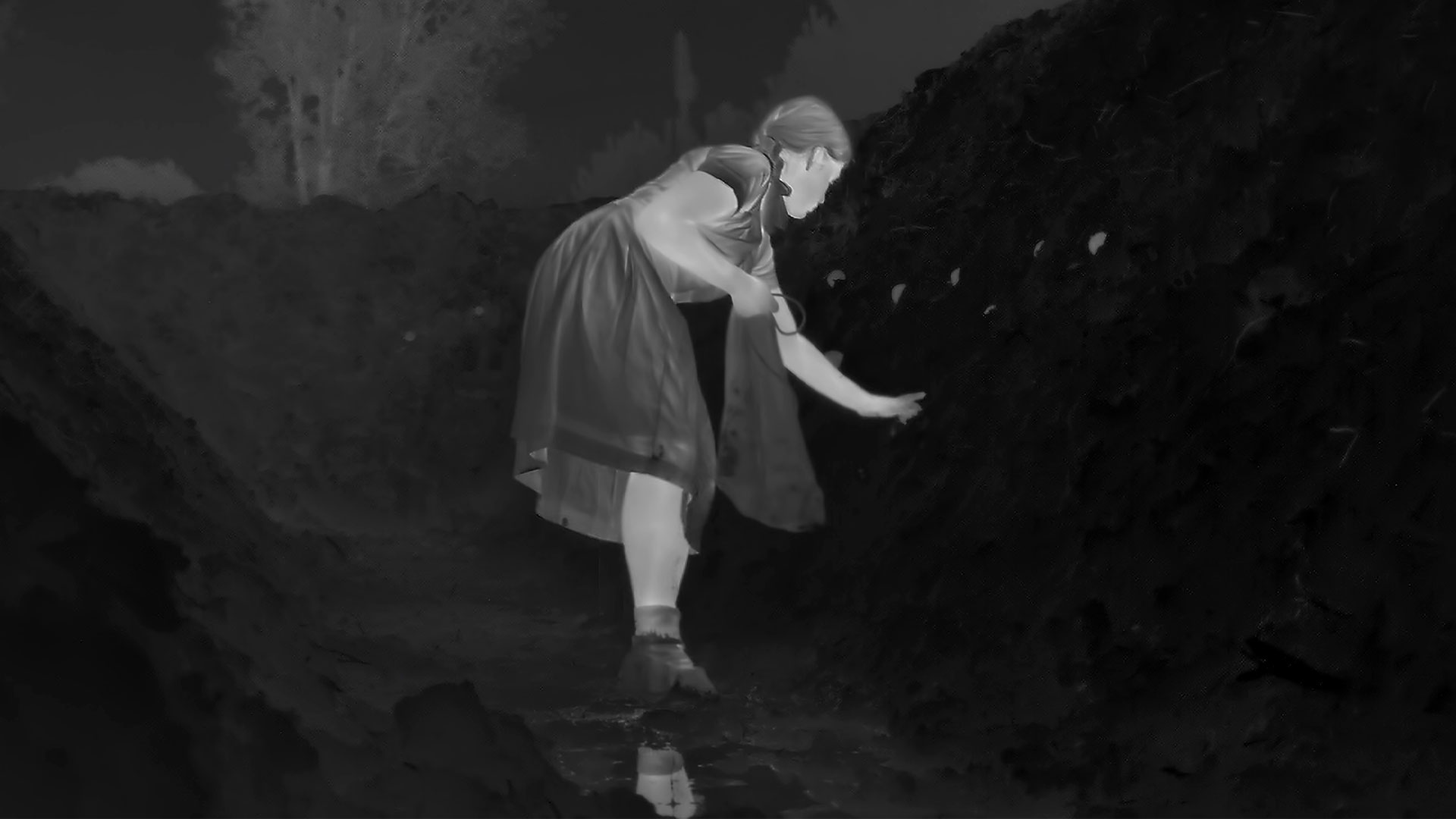
While the Höss family continues their daily routines seemingly unaffected by the horrors happening just beyond their garden’s wall, black smoke billows from the crematorium chimney in the background, a reminder of the camp’s true purpose.
The film then cuts to a thermal image sequence, revealing a mysterious girl leaving apples and pears in the trenches. Ominous music underscores the scene, leaving viewers to interpret her actions.
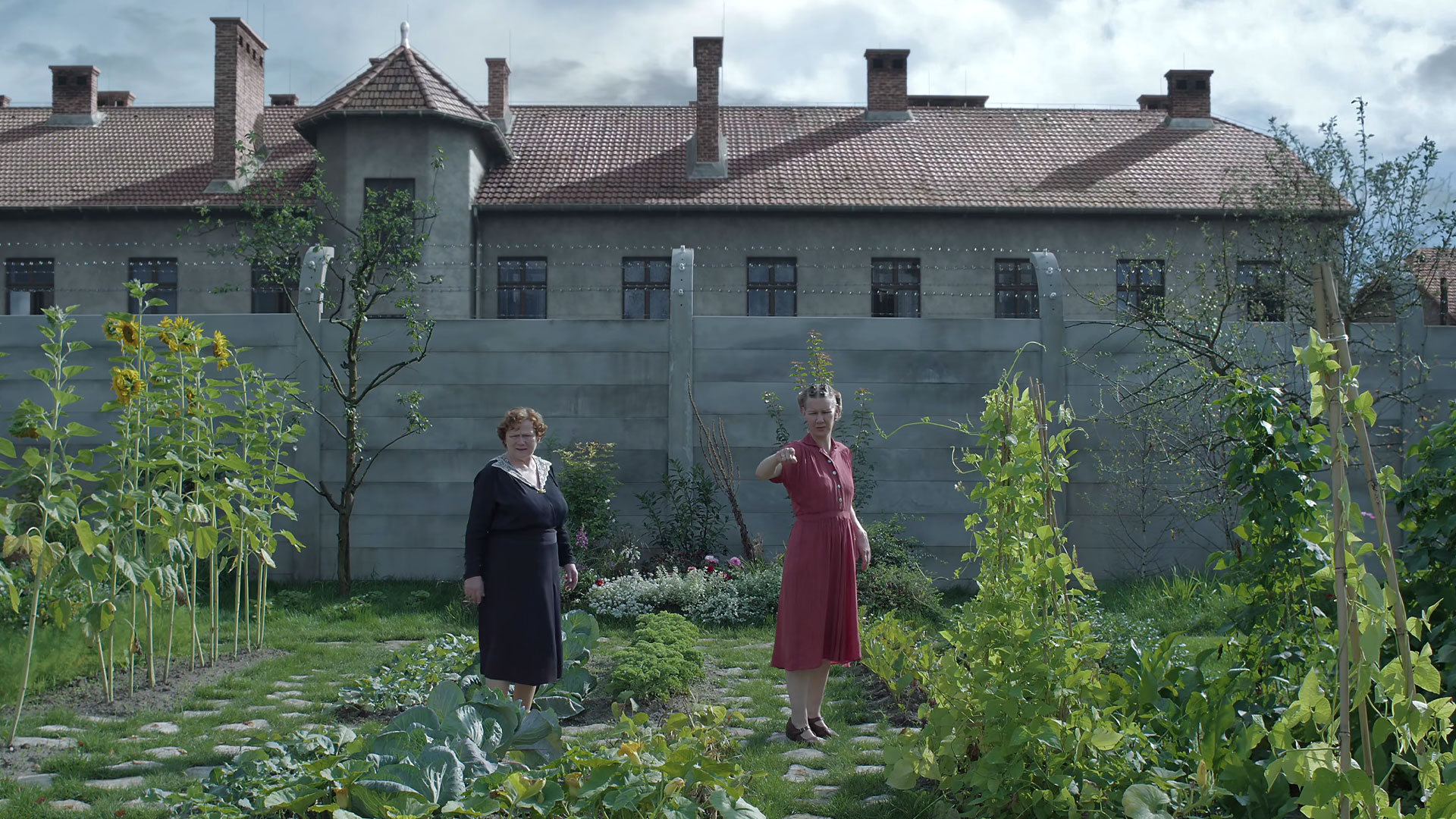
Hedwig’s mother Linna Hensel (Imogen Kogge), visits her daughter’s house in Auschwitz where Hedwing proudly shows off her large garden overflowing with vegetables and flowers as they chat in the unfinished gazebo. The film then uses close-up shots of various flowers juxtaposed with the sounds of distant screams, shouts, yells, and gunshots. This jarring juxtaposition effectively evokes a sense of violence without resorting to graphic imagery.
A few days later, Linna abruptly departs without even saying goodbye. This unexpected departure leaves Hedwig upset. She discovers a note left by her mother, but its contents remain a mystery.

Life on Hedwig’s side of the wall remains relatively peaceful until a sudden argument erupts between her and Rudolf in their garden. The cause of the argument is revealed as Rudolf’s impending transfer to Oranienburg. Hedwig is understandably confused and upset, especially since Rudolf admits knowing about this for some time without telling her. He claims to have tried to stop the transfer but was unsuccessful, and there wasn’t a good time to tell her until now.
Having built her dream home for their family and children, the thought of leaving is unbearable for Hedwig. She asks Rudolf to allow her to stay and raise the children here, waiting for his return. Though disappointed that Hedwig doesn’t want to accompany him, Rudolf agrees to send a request for her and the children to remain in the house during his absence

Written and directed by English filmmaker Jonathan Glazer, the film is loosely based on the 2014 novel of the same name by English author Martin Amis. Every shot in this film appears meticulously crafted, creating the impression that the characters exist in their own world, oblivious to the horrors taking place around them.
While the film deliberately avoids graphic imagery of violence, the filmmakers masterfully employ a combination of unsettling sounds and disturbing visuals, such as smoke rising from chimneys and ashes in the river, to create a pervasive sense of unease throughout the narrative.
Christian Friedel and Sandra Hüller deliver exceptional performances in the lead roles.

One of the film’s most powerful concluding scenes takes place in the present day at the Auschwitz-Birkenau State Museum. The camera focuses on staff carefully cleaning a glass pane in a hallway, revealing a chilling sight: hundreds of thousands of shoes piled up inside. It pulls us back to the horrifying truth that over 1 million victims died in the camp. Then the film shifts back in time where Rudolf descends and disappears into the darkness.
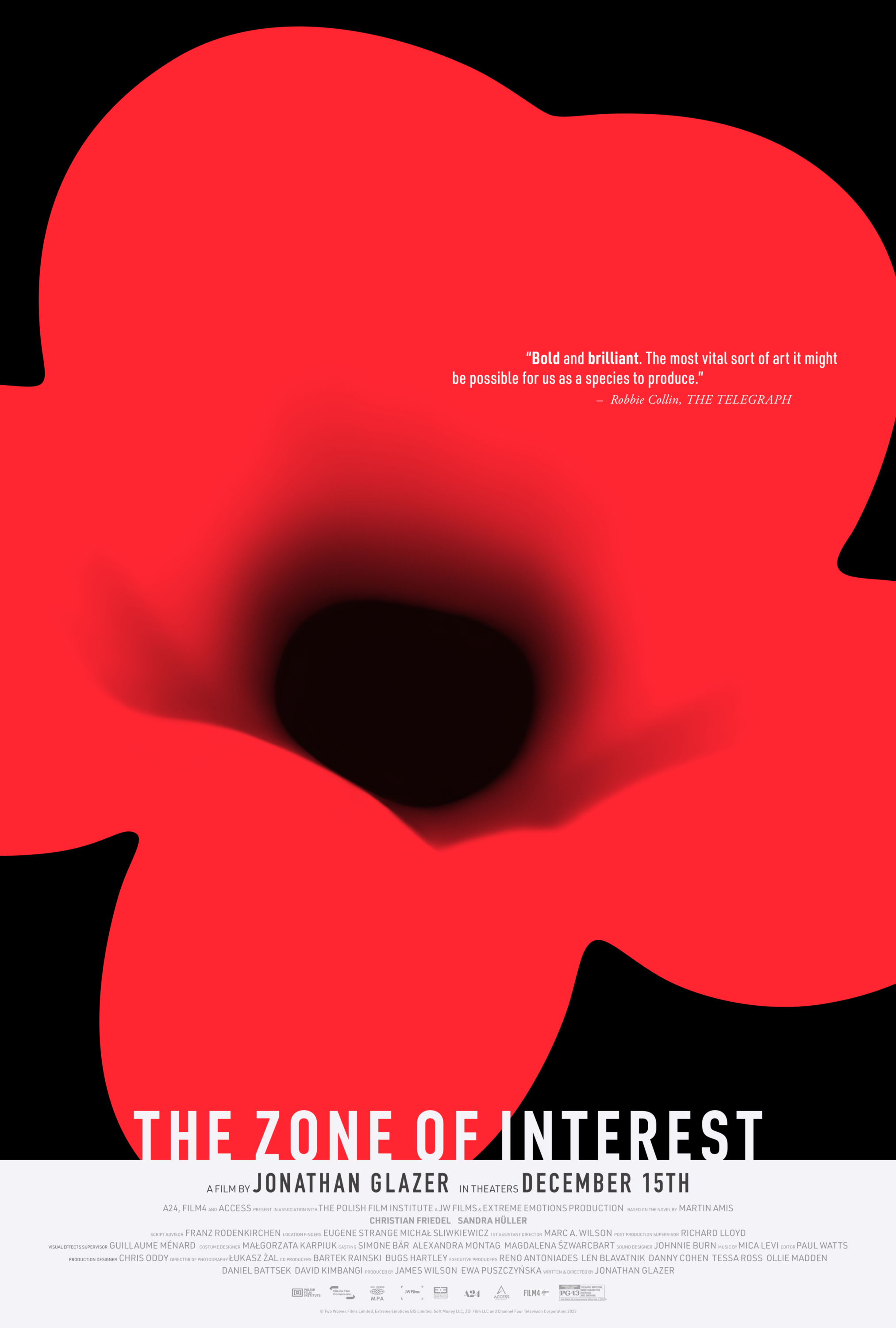
THE ZONE OF INTEREST premiered at Festival de Cannes on 19 May 2023, winning both Grand Prix and FIPRESCI Prize. The film received a limited theatrical release in the United States on 15 December, by A24. It is scheduled to release in Germany on 29 February 2024.
THE ZONE OF INTEREST was nominated for 5 Academy Awards, including Best Picture.




